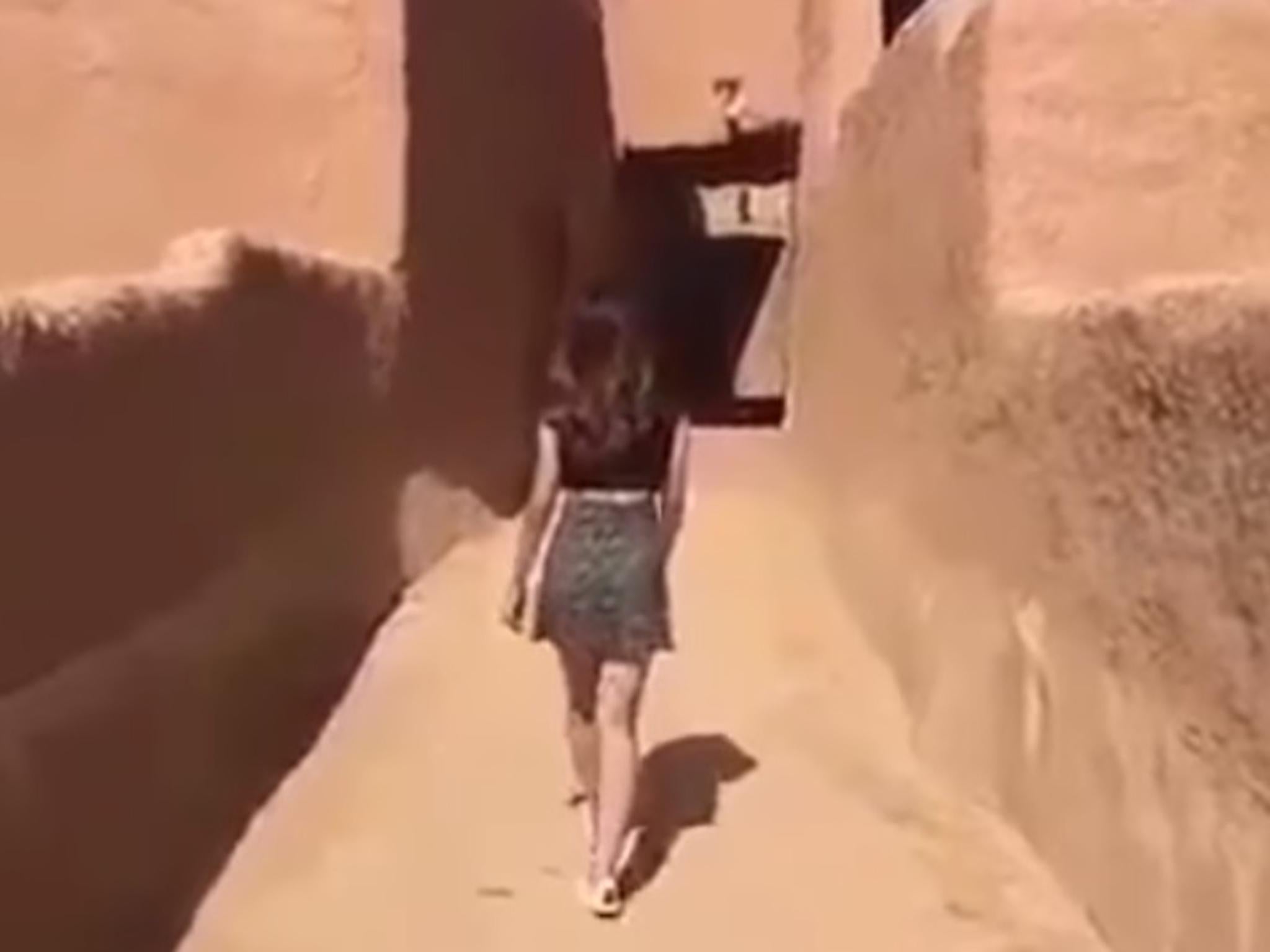Saudi Arabian woman who wore miniskirt in viral video has been arrested, state television claims
'Saudi Arabia’s continuing obsession with policing women’s clothing choices shows authorities haven’t moved on from the paternalistic and discriminatory mind-set that hampers women’s lives'

A young woman is at the center of a controversy about clothing in Saudi Arabia, after she posted videos of herself in one of the nation's most conservative provinces wearing a short skirt and a cropped top.
The woman has been arrested by Riyadh police for wearing “suggestive clothing,” Saudi state television station Al Ekhbariya reported Tuesday.
The brief clips, originally posted to the social network Snapchat over the weekend by a popular user named Khulood, show the woman walking through an ancient fort in Ushayqir, a village in Najd province about 95 miles from the capital, Riyadh.
The woman wears a skirt that stops above her knees and a top that shows her midriff; her head is also uncovered.
Such an outfit runs afoul of conservative Islamic ideas about women's dress that are prevalent in Saudi Arabia. The country legally requires women to cover themselves while in public by wearing an abaya, a loosefitting cloak. Traditionally, Saudi women are also expected to wear some kind of hijab or head covering, and some opt to cover their face with a niqab.
Although foreigners are usually exempted from such rules and Saudi women often find ways to skirt them, many religiously conservative Saudis feel strongly about them.
Ushayqir appears deserted in the videos, but Khulood's video soon spread online and quickly drew criticism — with many Saudis using a hashtag that said the woman should face trial for the videos.
Some argued that as the woman lived in Saudi Arabia, she should accept its laws. “Just like we call on people to respect the laws of countries they travel to, people must also respect the laws of this country,” Saudi writer Ibrahim al-Munayif wrote on his Twitter account.
But others offered their support for the woman, suggesting her behaviour was brave and that prominent foreigners sometimes dress similarly when visiting Saudi Arabia, and they are exempted from the country's dress codes. Many of them pointed out that Melania Trump and Ivanka Trump did not wear abayas when they visited the country in May, to little public outcry.
The exact fate of the woman remains unclear. Saudi newspaper Okaz had reported Sunday that local officials had written a letter to the region's governor and police asking to take action against those who made the video. Saudi Arabia's religious police also released a statement on Twitter saying they were aware of the video and looking into the matter.
Saudi Arabia has some of the strictest laws for women in the world. In addition to the restrictions on their dress, adult women need to have permission of a “male guardian” to do things, such as work or travel, and they are prohibited from getting driver's licenses, meaning in practice they cannot drive.
“Saudi Arabia’s continuing obsession with policing women’s clothing choices shows authorities haven’t moved on from the paternalistic and discriminatory mind-set that hampers women’s lives,” said Sarah Leah Whitson, executive director of Human Rights Watch's Middle East and North Africa Division. “Saudi Arabia’s purported plans to reshape society and advance women’s rights will never succeed as long as authorities go after women for what they wear.”
Crown Prince Mohammed bin Salman has launched an ambitious plan to reform Saudi Arabia's society — dubbed Vision 2030. Although the program includes some social aspects, such as the promotion of entertainment, there are doubts about whether it will be able to address the entrenched gender inequality.
One poll conducted in 2014 found that 63 percent believed that women should wear a niqab that covers all of their face except their eyes, and just 3 percent thought women not covering their hair were dressed appropriately.
Washington Post
Join our commenting forum
Join thought-provoking conversations, follow other Independent readers and see their replies
Comments